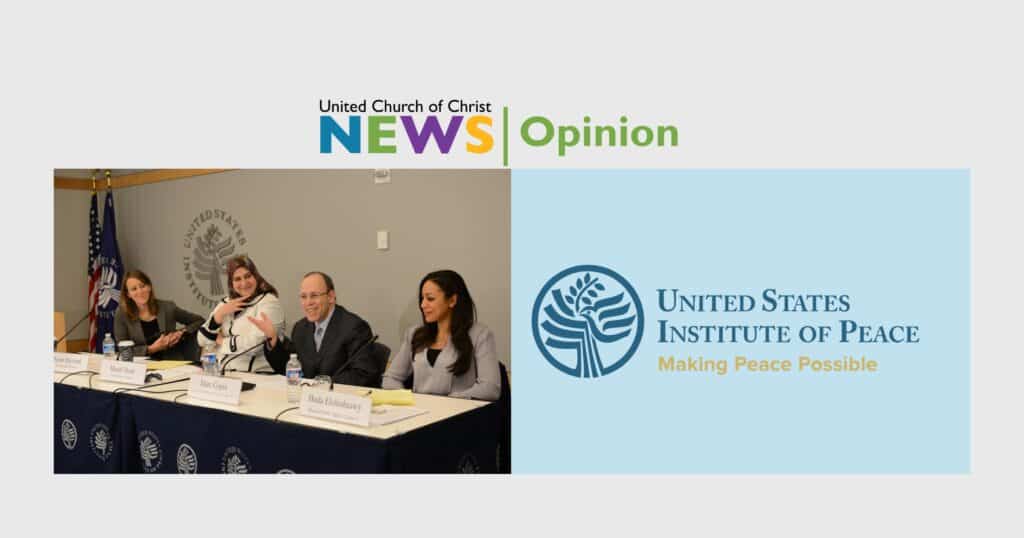Bold, prophetic, legal: UCC leaders offer advice for churches navigating the election
As the election approaches, many United Church of Christ congregations have been asking where, exactly, churches should draw the lines around political engagement.
The webinar, “Be Prophetic, Not Partisan: Navigating Election DO’s and Don’ts for Churches,” which took place last week, has answers to some of the most frequently asked questions.
Is political conversation during a church’s coffee hour acceptable? Can a congregation suggest shared values with a political candidate? Should a pastor volunteer for a political campaign? What are the rules around discussing Project 2025?
These are a few of the scenarios that Heather Kimmel, who serves as the UCC general counsel, and Rev. Michael Neuroth, director of the UCC Office of Public Policy & Advocacy in Washington, D.C., walked through in the webinar.
‘Work within the guidelines’
Kimmel clarified that the information shared in the webinar seeks to point people in the right direction, but is not legal advice.
Churches, as 501(c)(3) organizations under the Internal Revenue Code, are prohibited from taking part in any partisan activity. But the definition of partisan activity can come down to details and context, Kimmel said. For example, something can be partisan without using a candidate’s name if the language used implies a particular candidate.
Kimmel mentioned that though there can be significant consequences to violating the rules, like an organization losing its tax-exempt status – even retroactively – these are not commonly enforced.
Neuroth recommended that churches “work within the guidelines, and in many ways push right up to what those guidelines are to be as prophetic and as bold as we possibly can.”
He distinguished that churches should speak out on issues they care about – but they certainly should never direct people how to vote.
Bold, prophetic, legal
For a deeper dive, Kimmel offered two publications with a wide variety of scenarios for what may or may not violate the rules, assuring that they are “easy reads”:
A two-page resource, Guidelines for Congregations on Political Action, is also available through the D.C. Office’s Our Faith Our Vote initiative.
“The real hope for this presentation is, number one, to be informed of what these limitations are, but not let those dampen our enthusiasm to be engaged, but rather inspire us to be bold, to be prophetic, and to be legal, to get folks registered to vote – which is clearly in our purview to do – to be informed on the issues – which we can certainly do – and to be empowered to defend democracy and claim our sacred right to vote,” Neuroth said.
Find the full recorded webinar here.
Content on ucc.org is copyrighted by the National Setting of the United Church of Christ and may be only shared according to the guidelines outlined here.
Related News
Send a prayer shawl along to General Synod 35
There’s been a buzz about Missouri, Kansas – can you hear it? It’s more of a clicking...
Read MoreOpinion: UCC pastor and former Institute of Peace Staffer calls for action in defense of peace
Editor’s Note: The United States Institute of Peace (USIP), an independent institute founded...
Read MorePension Boards appoints David A. Klassen as its President, CEO
The Pension Boards, an affiliated ministry of the United Church of Christ recently announced its...
Read More




